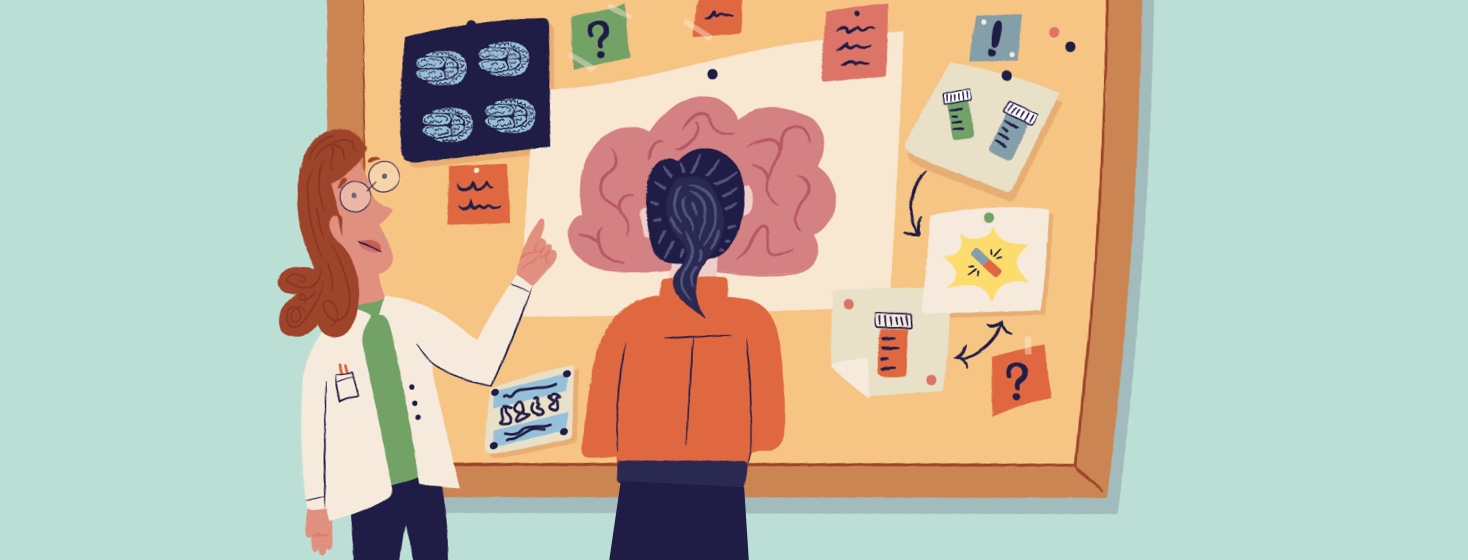Questions to Ask Your Neurologist About Your Epilepsy
"I think you have temporal lobe epilepsy, and occasionally have secondary generalizations."
My very first appointment with a neurologist came a few days after running a marathon in Seattle when a string of seizures left me with a massive black eye and a large cut in my arm from a knife. Though I don't remember specifics from the appointment because seizures have destroyed many memories, I do know my reaction was a sense of dread.
The word epilepsy was scary. My new world was scary. Then questions started forming.
- Did my new diagnosis mean more seizures would come?
- How did he know they were temporal lobe seizures?
- What does secondarily generalized mean?
These questions are all important.
Write down your questions for your neurologist
This is my advice for preparing for appointments with your neurologist. Also, be sure to bring a notebook to write the answers down as well. I would need answers to the questions more than once. Maybe it was the stress, but I could never remember the details.
My mind was consumed with only 1 thought at first...
How is an epilepsy diagnosis going to impact my career?
Definitely discuss the expectations of your job with your neurologist. Do you need to drive or remember multiple things like I needed to as a reporter? These parts of the work you do are important to consider.
How will seizures impact my memory?
At first, I didn't recognize that seizures were destroying my most treasured memories and impacting my job as a news reporter. Friends and coworkers were the ones to tell me. A large part of the reason – which I didn't know then – was that my mood was playing into my memory loss. Stress and insomnia went hand in hand with seizures, and I couldn't concentrate on important conversations. But mood isn't the only factor in memory.
What epilepsy medications could impact my concentration?
As a reporter, remembering multiple people, places, and things was crucial for my job. It wasn't until I left reporting and did an in-depth psychological test did my new doctor realize that one medication was at fault for my concentration and attention issues.
What are the statistics with my type of anti-epileptic drug (AED)?
Will it likely work to stop seizures? Or should I expect to fail 1, or 2, or 3 AEDs?
If my first medication doesn't work, should I take more than 1 type of medication?
This is called combination therapy. I write this because I started out on one AED, and was then put on 2 AEDs 2 years later. I continue to take 2 medications to this day. A friend of mine only takes 1 medication. He has tried and failed medication after medication, without his doctor doubling any of them up. Every doctor does things differently so if your seizures are continuing with 1 AED, ask your doctor if combination therapy might be a good option.
What kind of side effects should I expect with my AEDS, and what can I do to stop them?
My noticeable side effects – dizziness and brain fog– thankfully didn't start until after surgery. I would get very dizzy with my morning and evening meds. It took me 7 years to figure out on my own that a high-protein snack or protein shake right before my high dose of nighttime meds was crucial. It was the only way to prevent me from falling over due to extreme dizziness.
The game changer for my daytime dose was my doctor prescribing an extended release version of one of my meds.
Is surgery an option?
If medications aren't stopping your seizures, ask your doctor if surgery might be an option. Keep in mind that surgery is only performed at level 4 epilepsy centers. If your doctor says you might be a good candidate you can ask for the statistics on outcomes of specific surgeries and the risks of each 1. In my case, I had a lower chance of seizure freedom because my temporal lobe MRI didn't show a lesion.
Ask your neurologist about other resources, too
Aside from the medical questions, ask about resources for emotional support. Maybe you don’t want support right away, but you may find it helpful later on. To this day, I wish I had known about the Epilepsy Foundation. I wasn't aware of the foundation when I lived in Oregon and Michigan, and I think I would have benefited from knowing people just like I was battling seizures and memory loss.
Now I attend the monthly virtual support group with the Epilepsy Foundation of Minnesota and I feel it’s important to provide encouragement to people with seizures.

Join the conversation